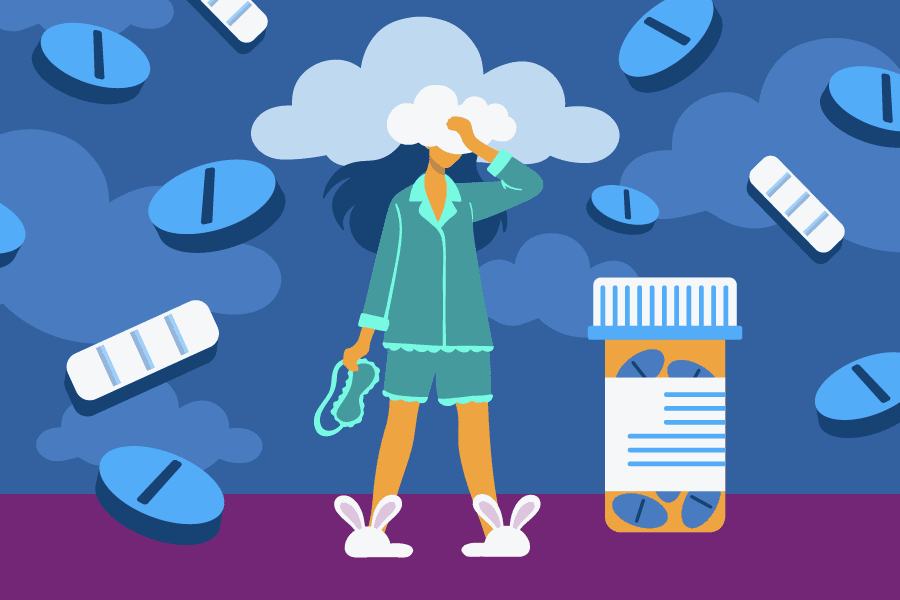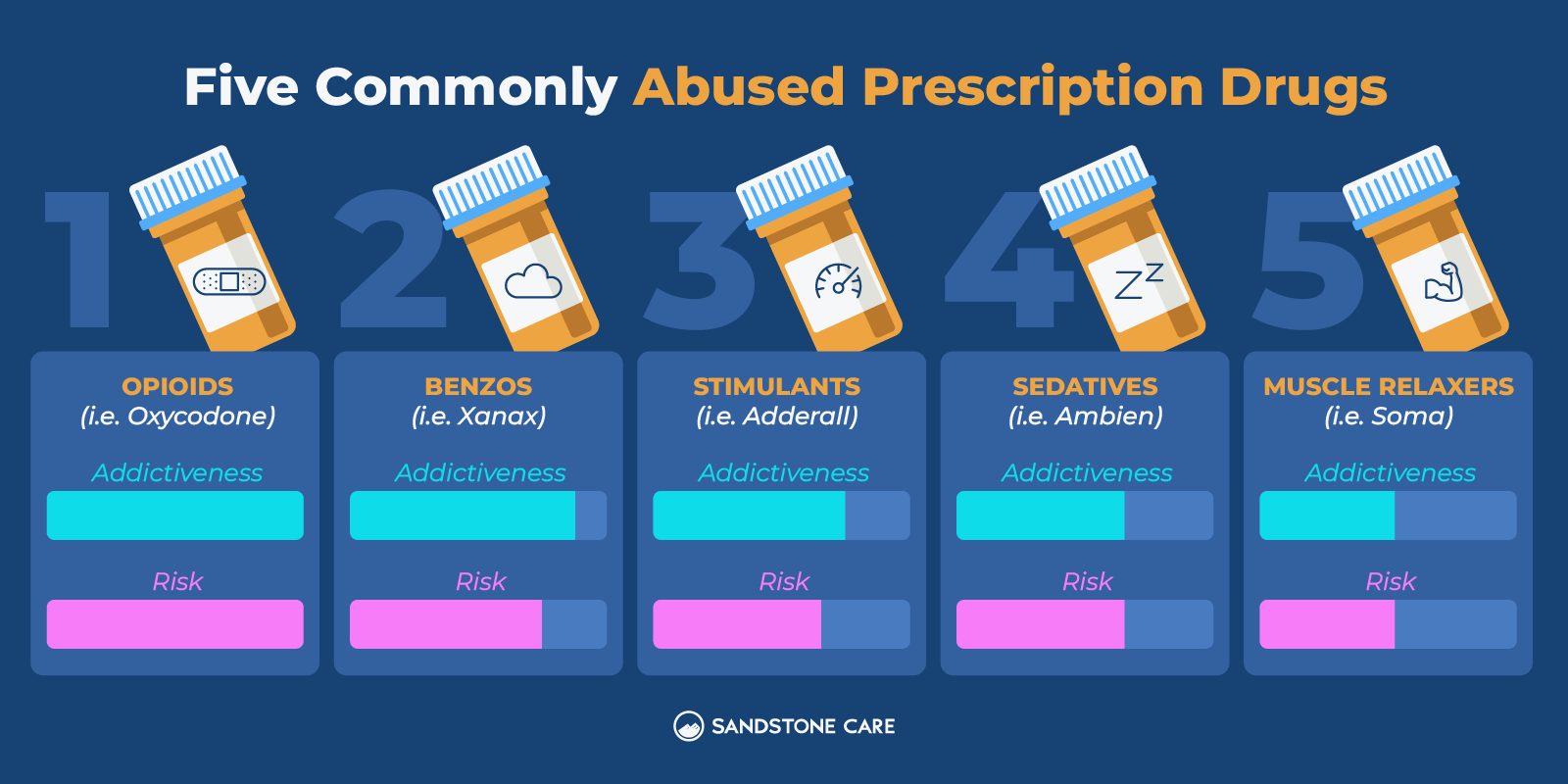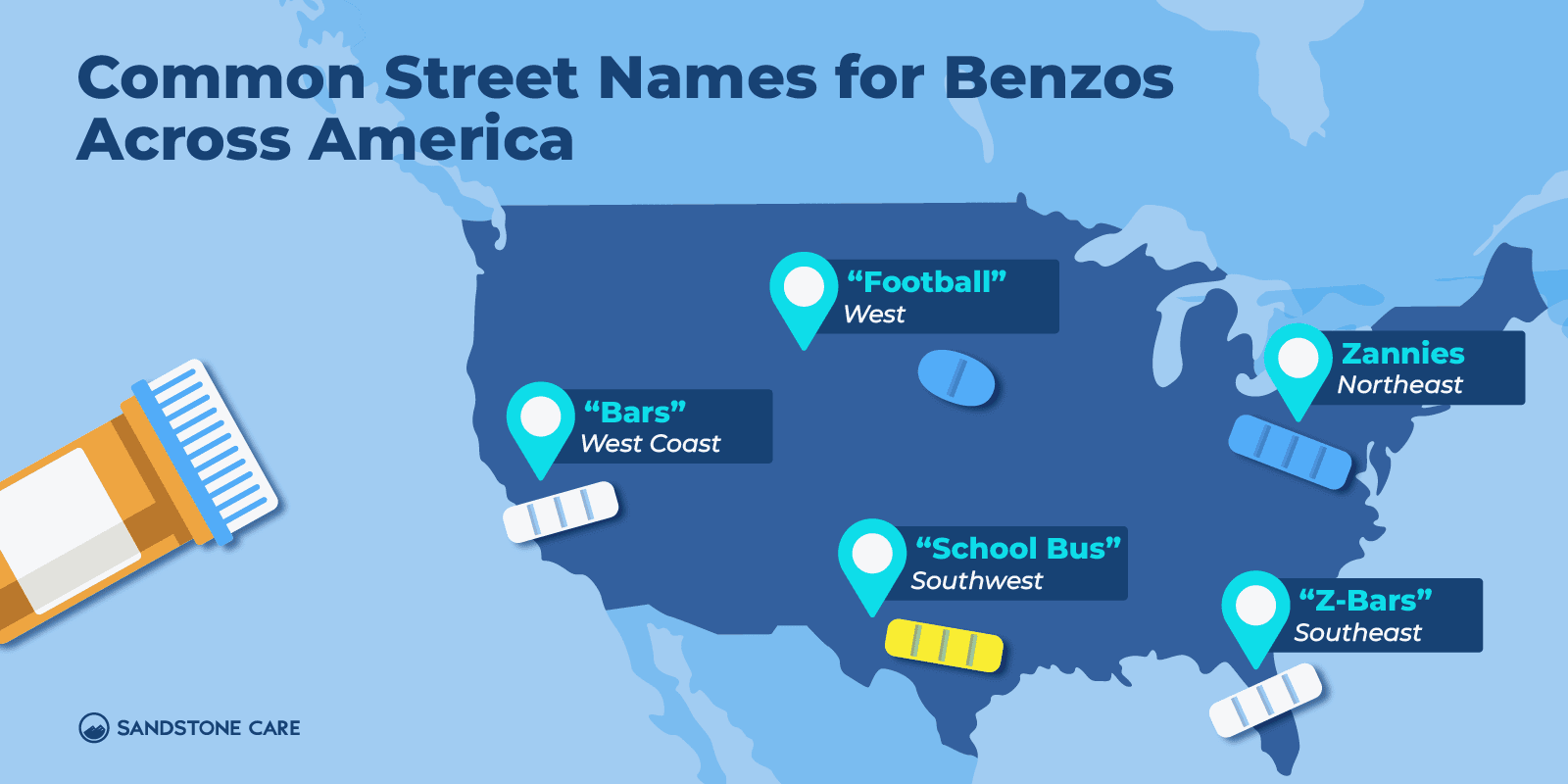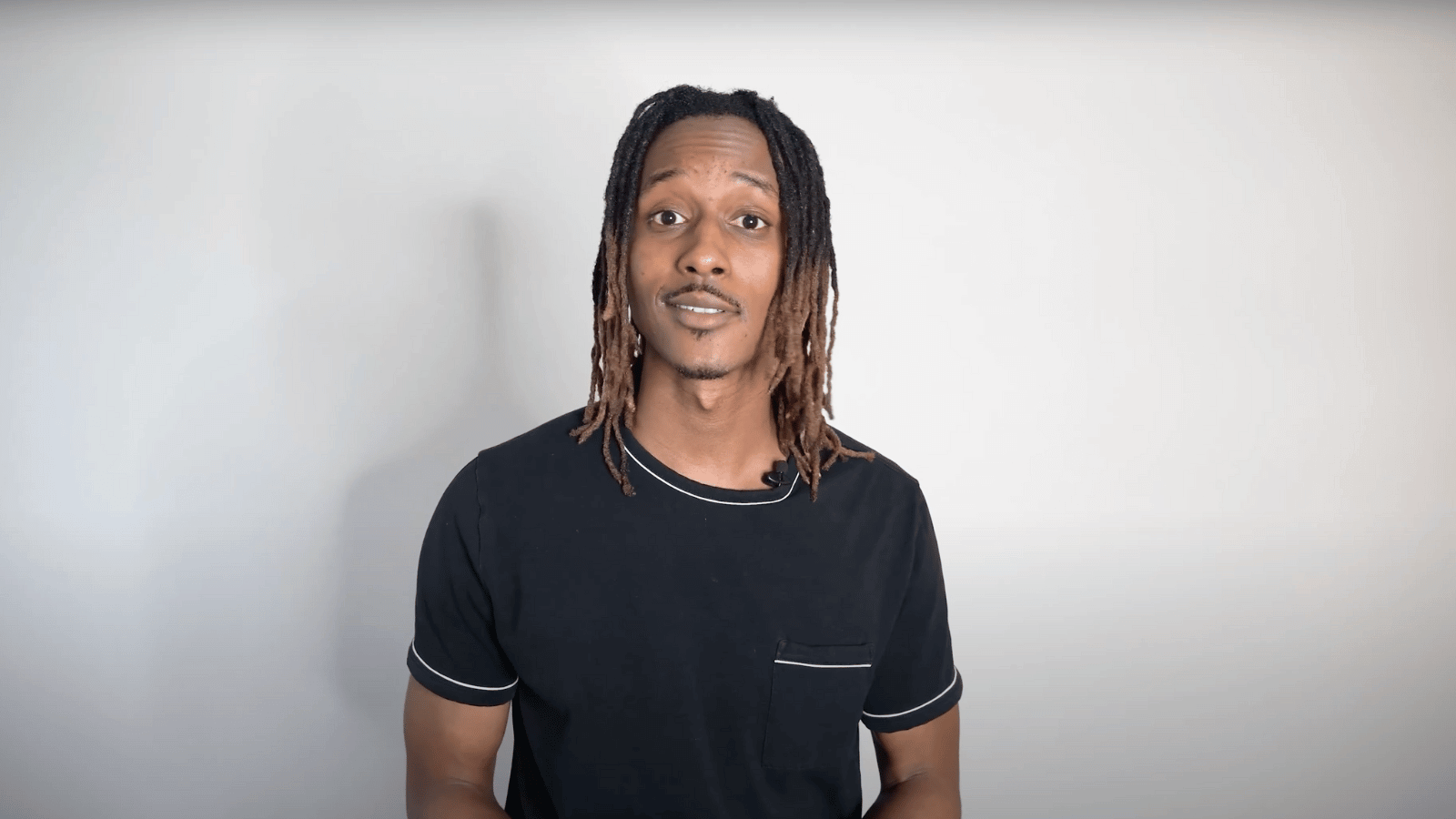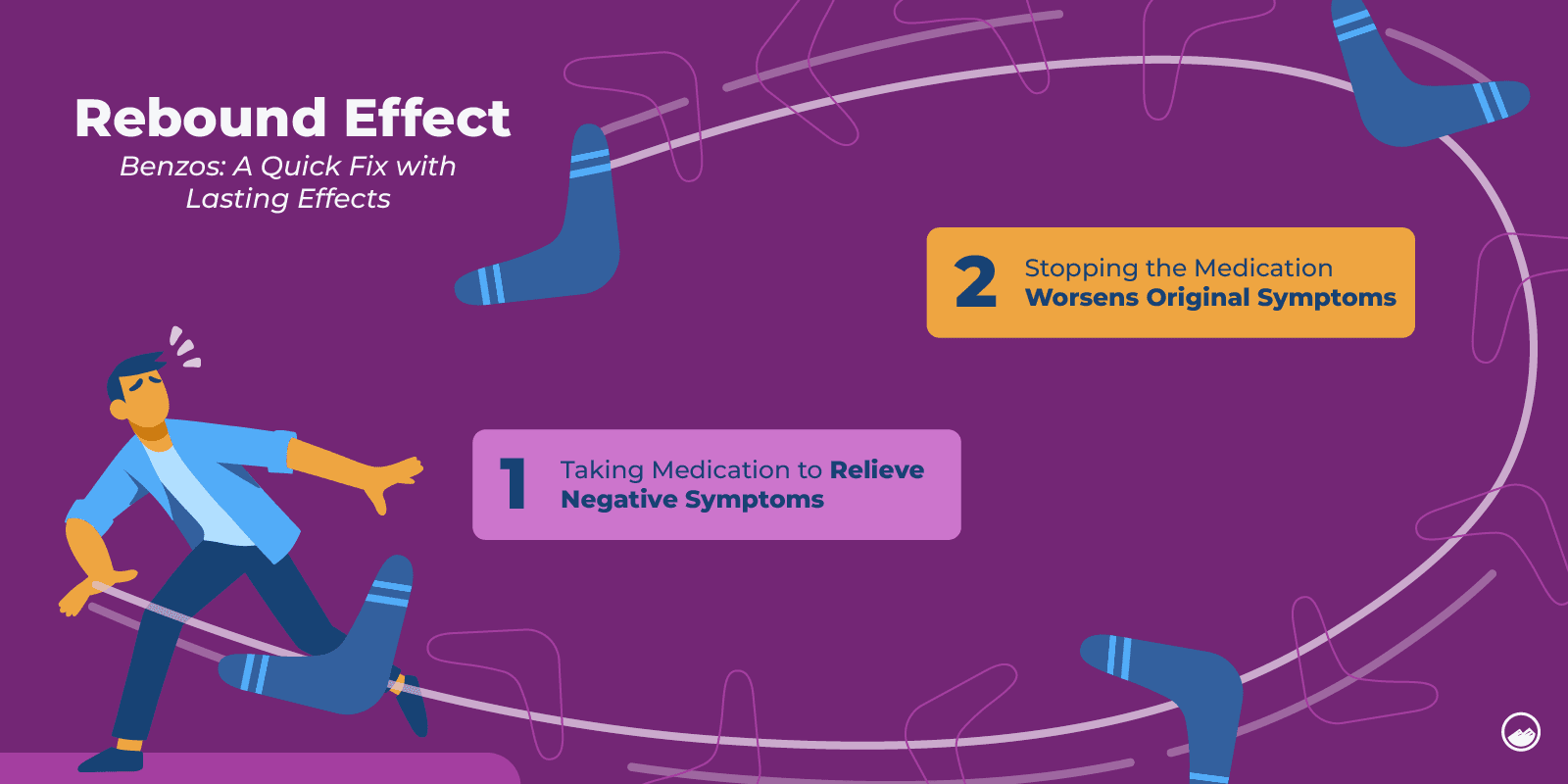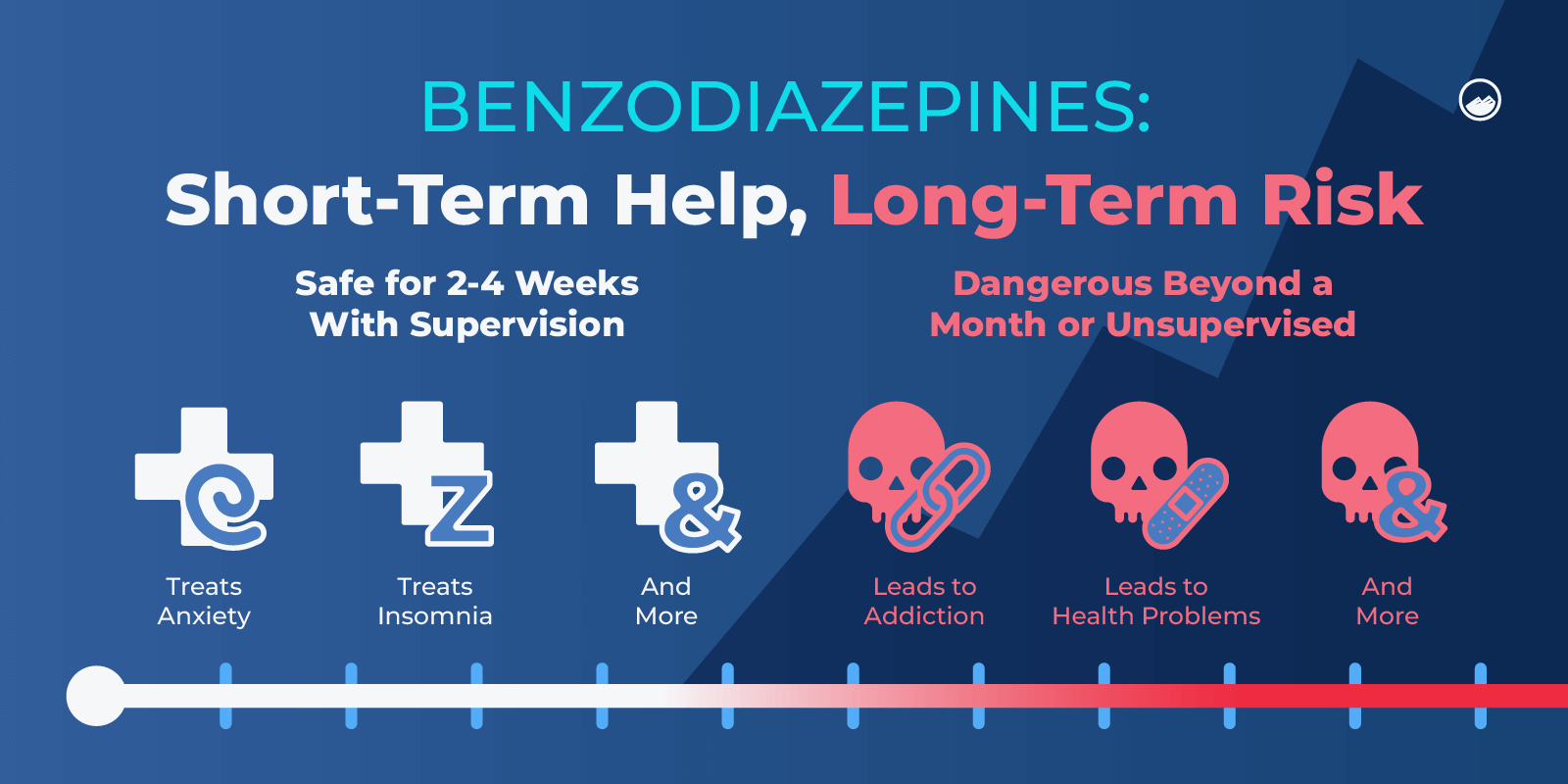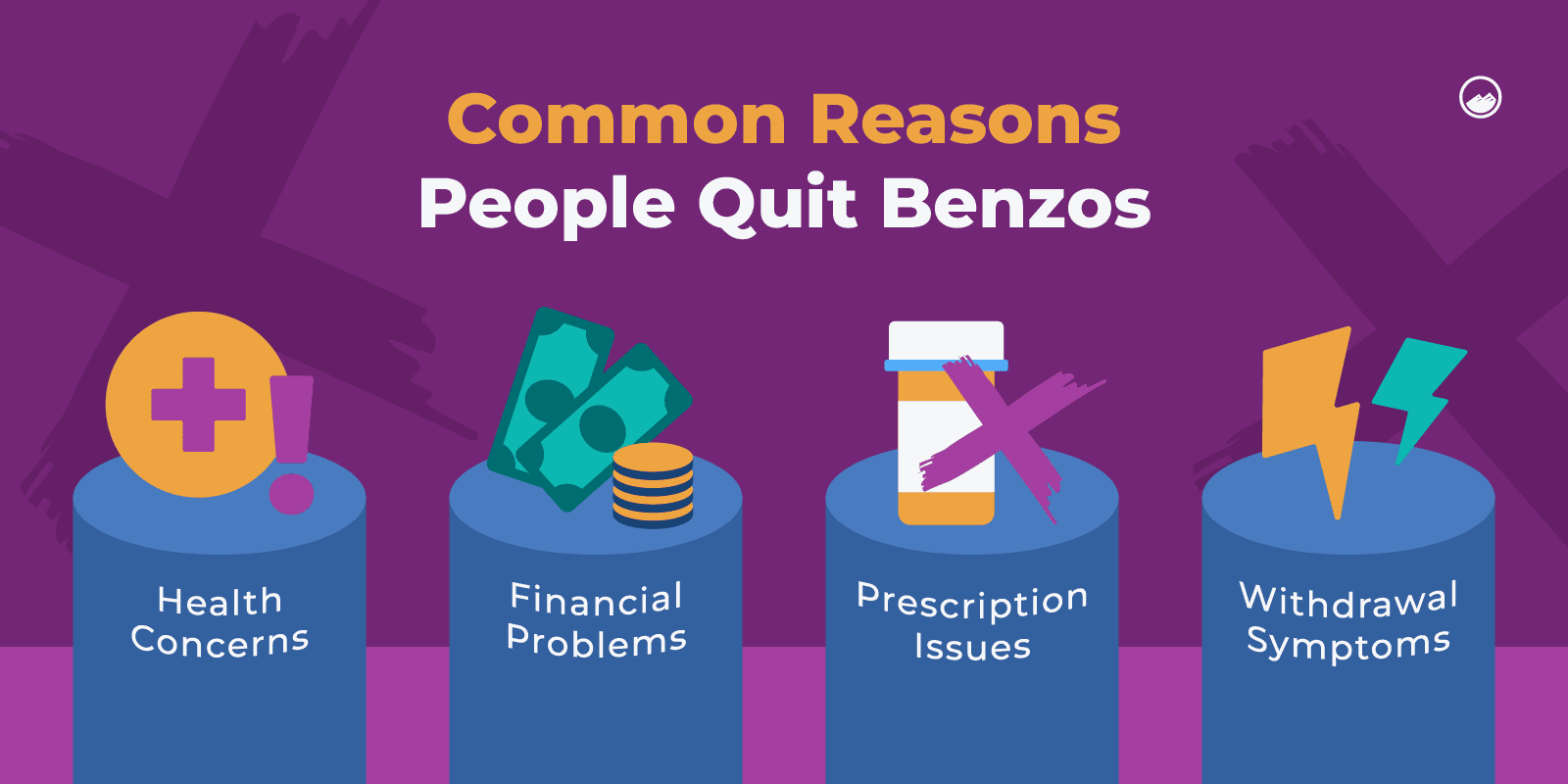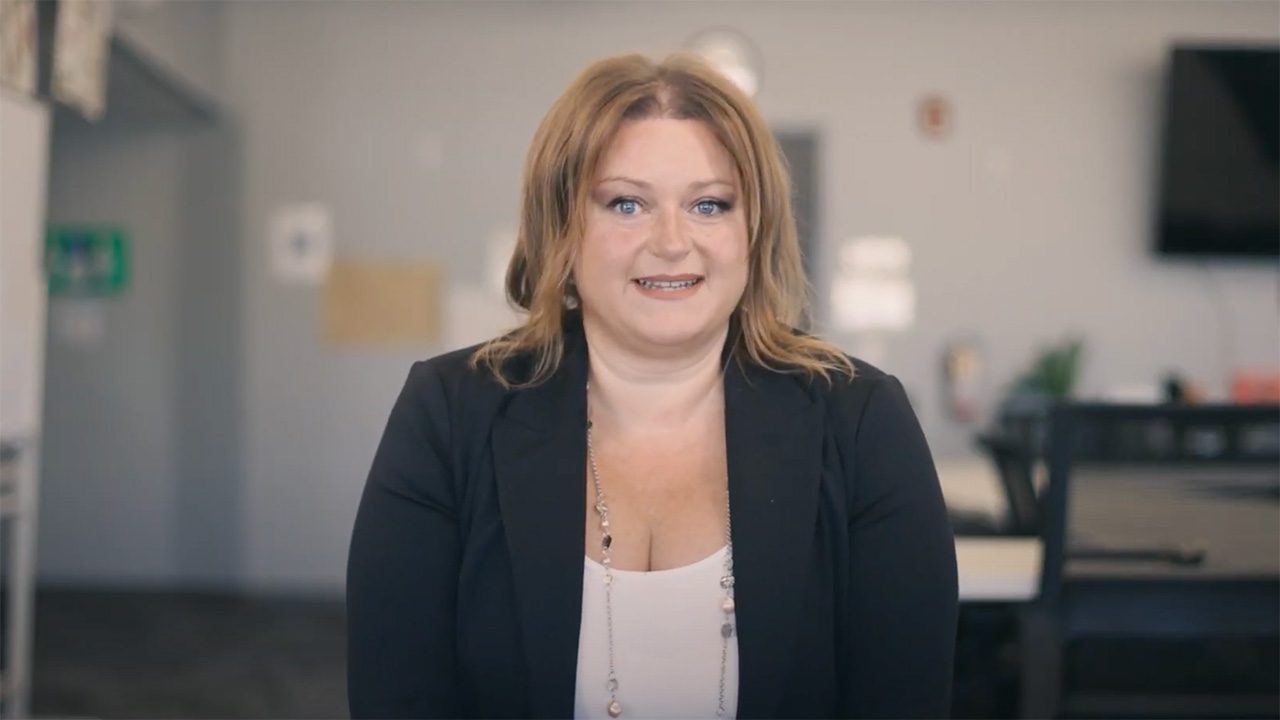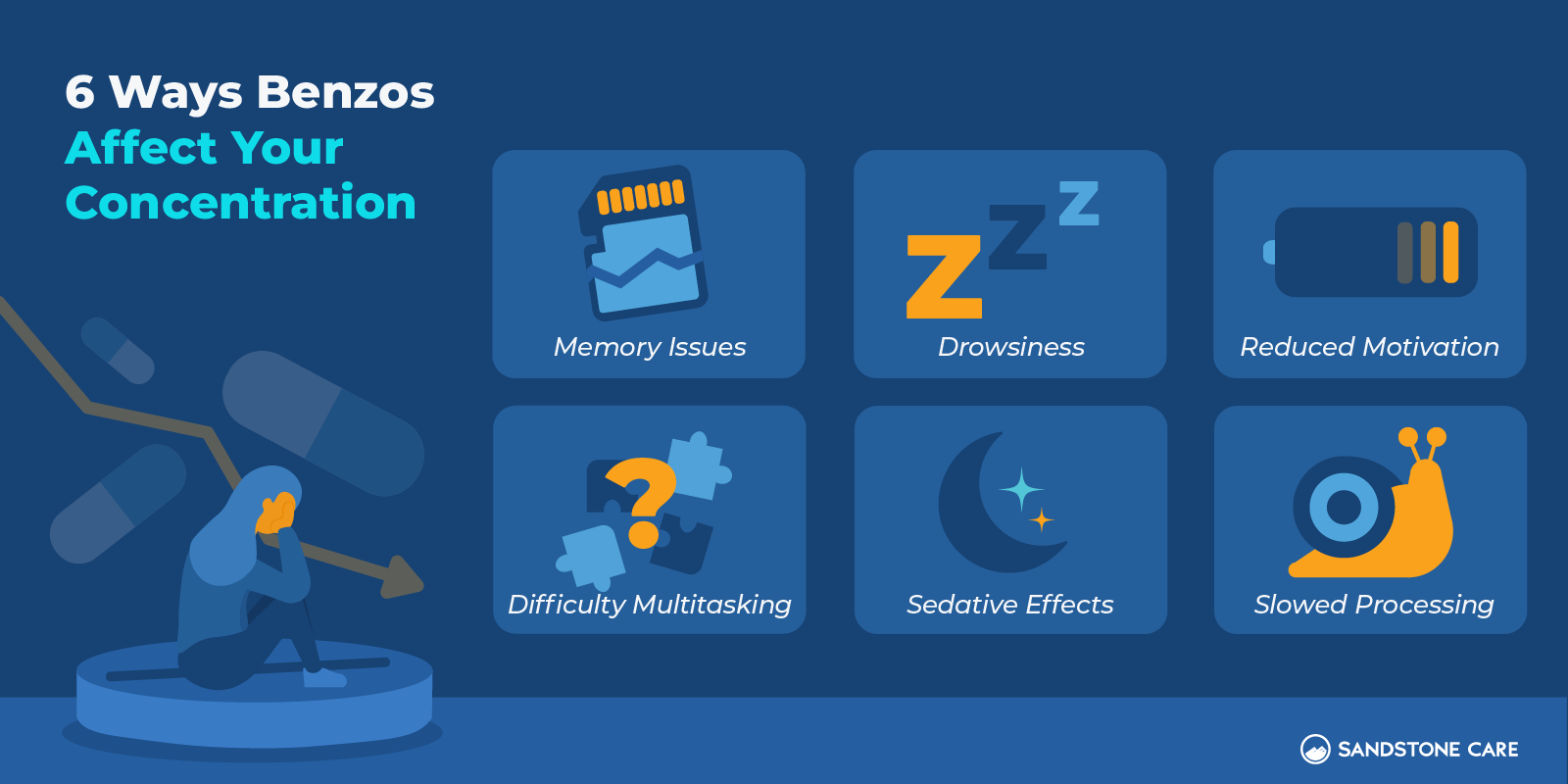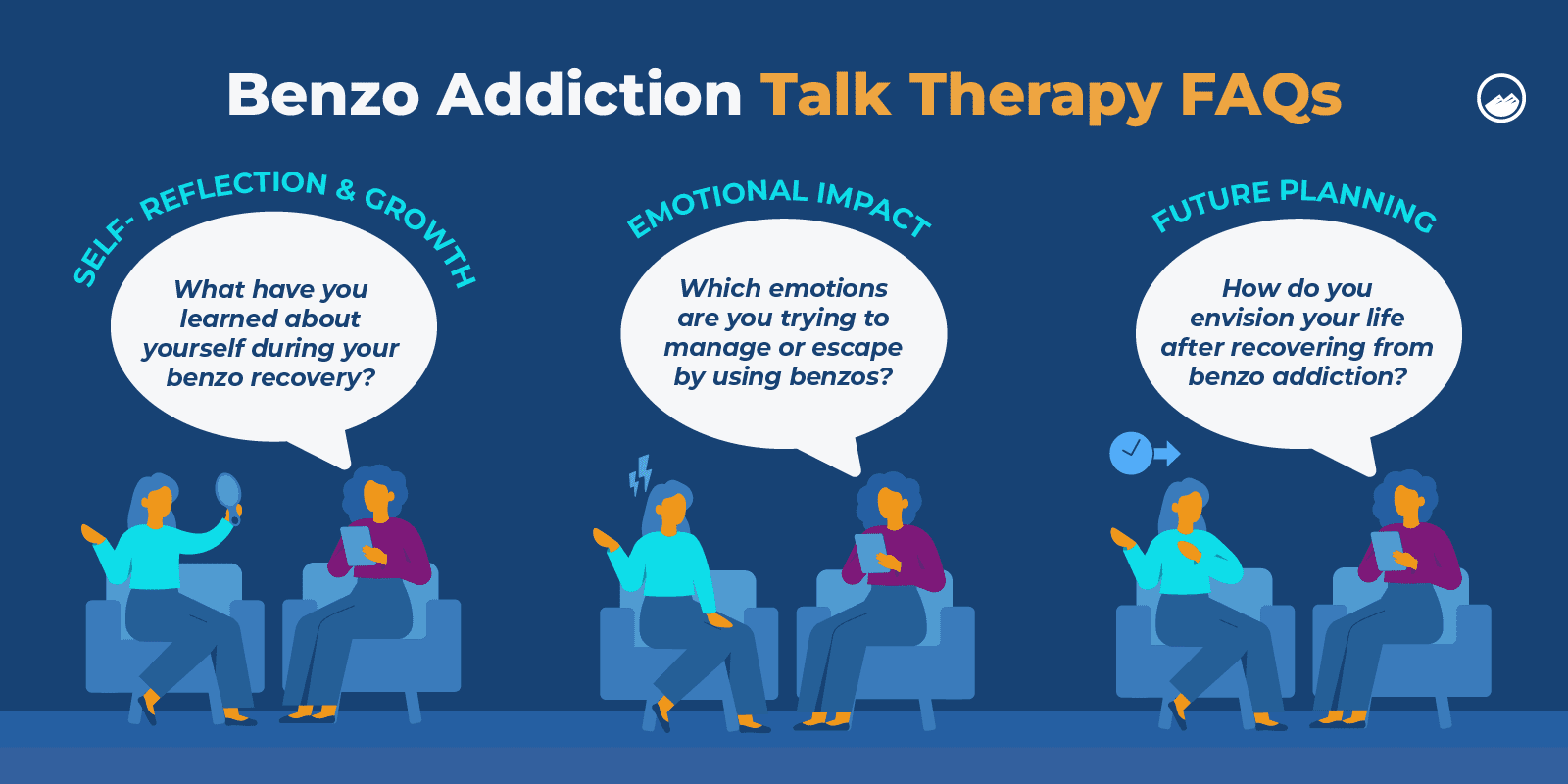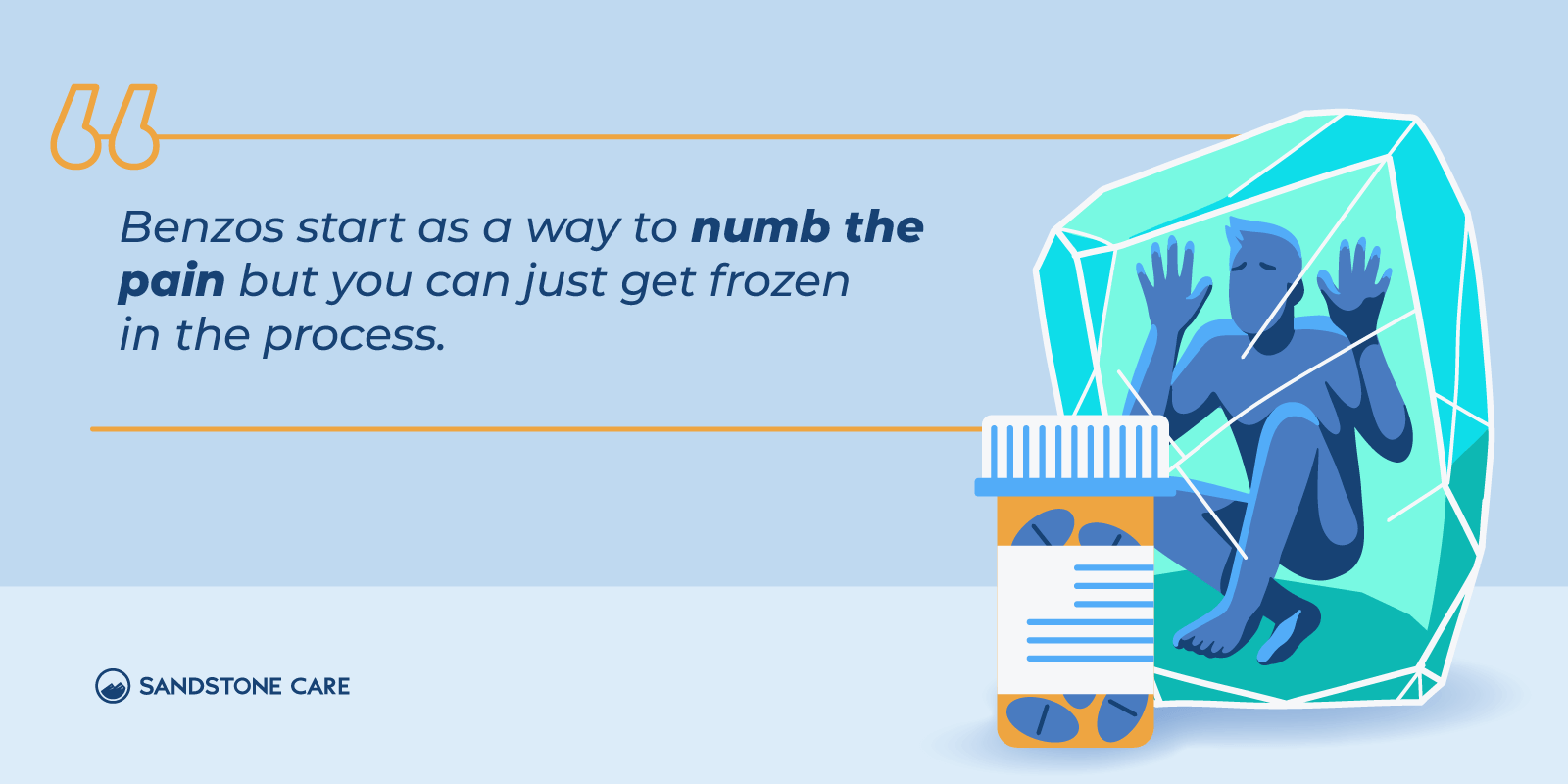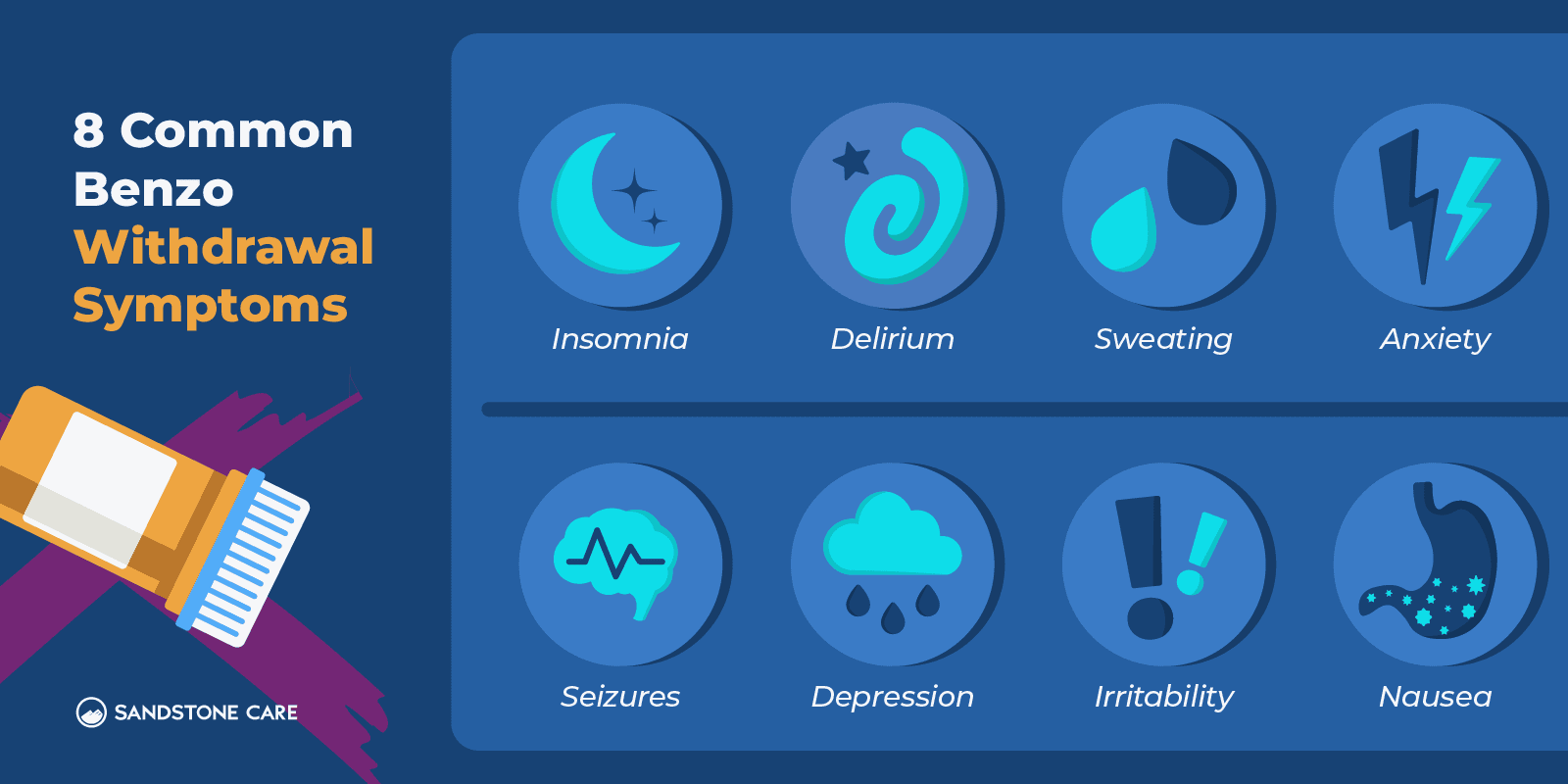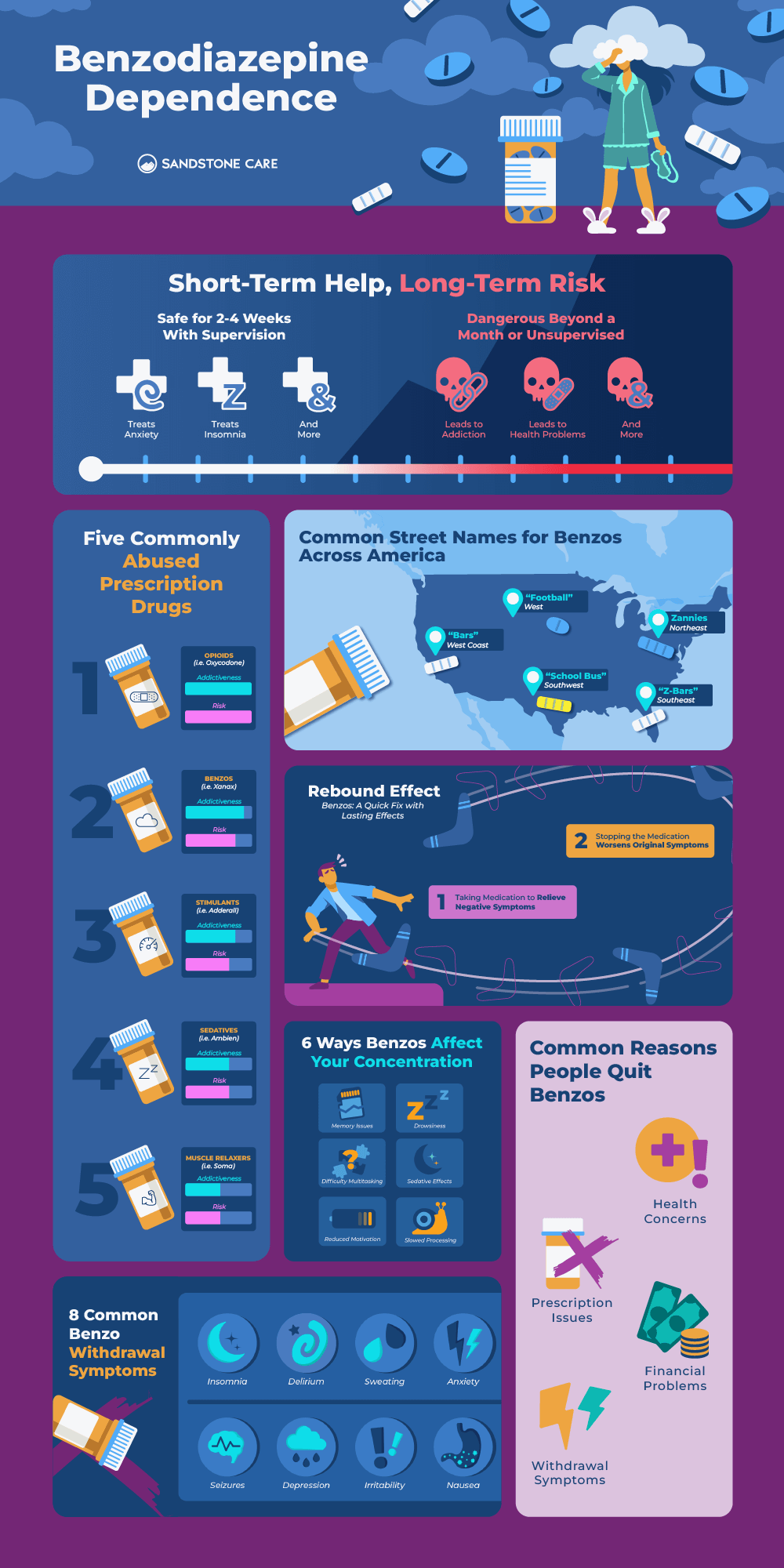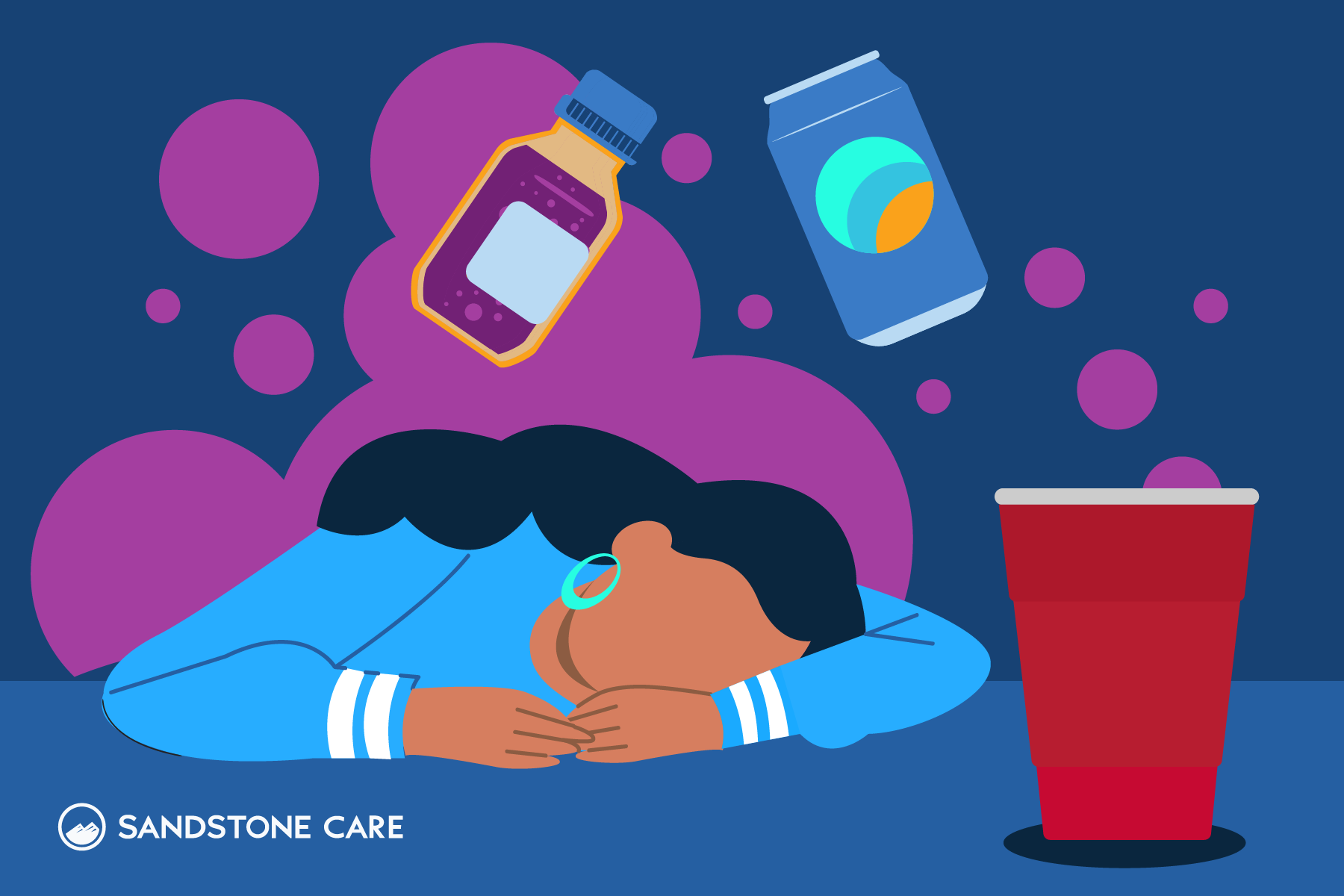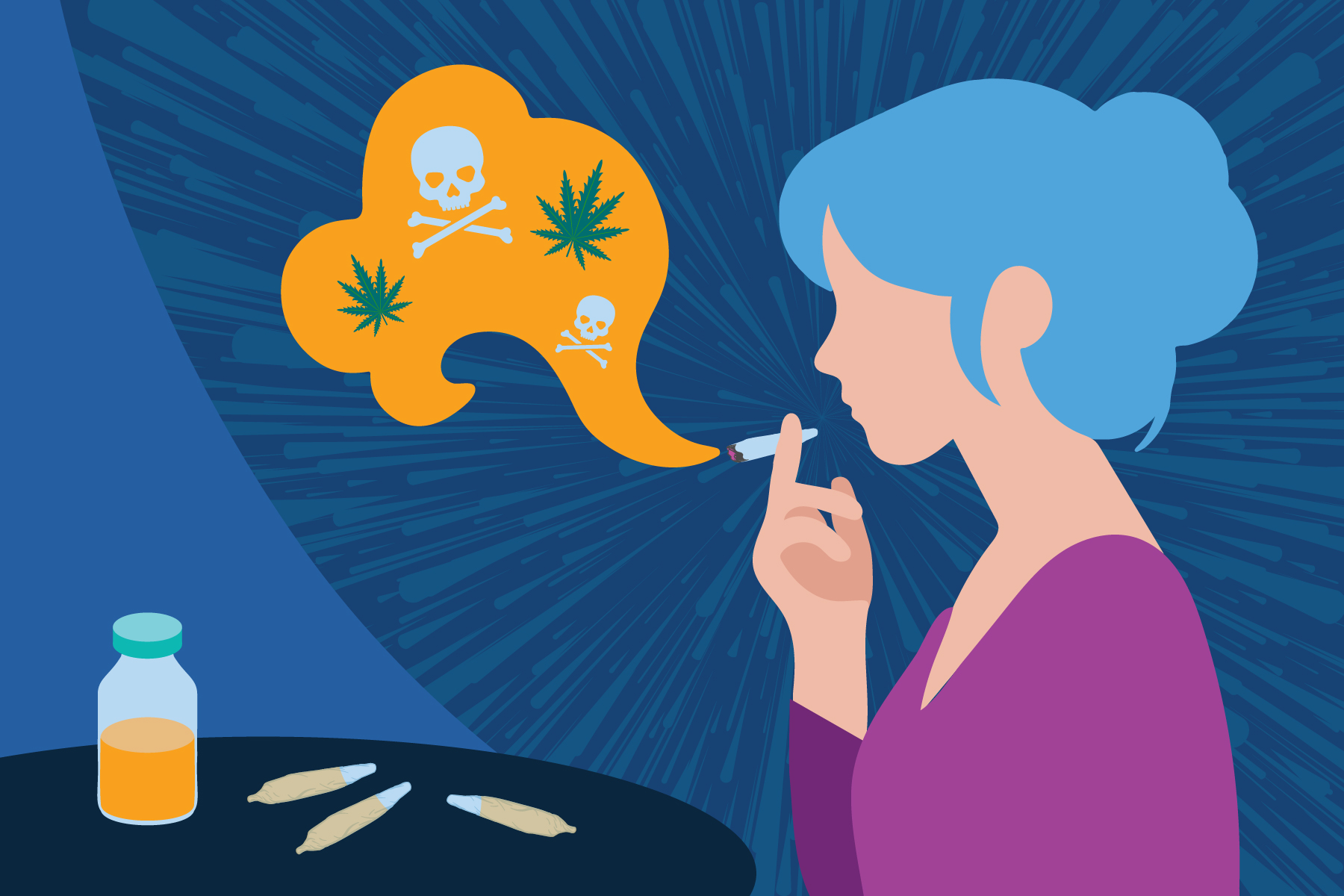Benzodiazepines
What Are Benzodiazepines?
Benzodiazepines, also known as “benzos,” are central nervous system depressants that are prescription drugs primarily used to treat anxiety and panic disorder.
They may be used to produce sedation and hypnosis, relieve muscle spasms, and reduce seizures.
Benzos are an anxiolytic, which is a type of medication or intervention that is used to reduce anxiety. Anxiolytics are commonly prescribed to treat conditions such as generalized anxiety disorder (GAD), panic disorder, social anxiety disorder, and other anxiety-related conditions.
Although benzos can help a person feel calm and relaxed, they are commonly abused and are highly addictive.
Even with benzodiazepine prescriptions, it is important to understand the effects of a substance to be aware of adverse outcomes and prevent them from happening.
Benzodiazepine drug abuse significantly impacts the young adult population. They may have been prescribed benzos but use them for reasons other than what they are intended for, or they may obtain them from friends or family members.
What Are the Common Names & Uses For Benzos?
Benzos may also be referred to as downers and are typically used for their sedative effects.
There are several different types of benzodiazepines.
Because these medicines are prescribed so often, they are also widely available for abuse.
Common street names for benzos include:
- Sleepers
- Tranqs
- Chill pills
- CandyTranks
- Downers
- Goofballs
- Nerve pills
- Vallies
- Moggies
- Xannies / Zannies
- Bars / Z-Bars
- Footballs
- Bennies
- Pins / K-Pins
- Super Valium
- Blue Bombs / Blues
- Control
- Rugby Balls
- Up Johns
What Are the Types of Benzodiazepines?
There are many types of benzodiazepines. Some of the most common are:
- Alprazolam (Xanax)
- Chlordiazepoxide (Librium)
- Clobozam (Onfi)
- Clorazepate (Tranxene)
- Lorazepam (Ativan)
- Oxazepam (Serax)
- Diazepam (Valium, Diastat)
- Temazepam (Restoril)
- Triazolam (Halcion)
- Clonazepam (Klonopin, Rivotril)
Although the abuse of benzodiazepines alone does not usually lead to serious immediate medical problems, people who abuse them often take them along with other drugs.
This is especially true of alcohol.
This is very dangerous, as the combined depressant effects of benzos and alcohol poses a high overdose risk.
What Do Benzos Look Like?
Common benzodiazepines can include diazepam (Valium), alprazolam (Xanax), oxazepam, and clonazepam (Klonopin).
Valium is usually a circular, white pill with a “V” in the middle.
Xanax is typically white, pink, or light blue in the shape of an oval pill.
A different kind of Xanax, extended-release Xanax, can be triangular, round, square, or pentagon-shaped.
Klonopin is usually a blue, circular pill with a “K’“ in the middle.
Are Benzodiazepines Addictive?
Yes, benzodiazepines can be addictive.
Over time, a person can build a tolerance to benzodiazepines, meaning they need more and more of the drug to produce the same effects.
That tolerance often becomes a dependence, where a person experiences withdrawal symptoms if drug use stops abruptly.
A person who develops a dependence may develop substance use disorder (SUD).
SUDs occur when alcohol or drugs cause significant impairment and negatively impact a person’s health, life, and responsibilities.
When someone is struggling with an addiction, which is the most severe form of SUD, they cannot discontinue substance use despite its negative consequences without some outside help.
Can Benzo Use Cause Mental Health Issues?
Using substances like benzodiazepines may result in depressive symptoms or trigger depression in vulnerable people.
Benzos may also cause changes in a person’s mood.
A person dependent on benzodiazepines may also experience the “rebound effect,” where symptoms of their anxiety may come back as they were or even worse than before.
Benzodiazepine Abuse
What is Benzodiazepine (Benzo) Abuse?
Benzodiazepines, also known as benzos, are tranquilizers – a class of medications used to treat anxiety, insomnia, seizures and muscle tension.
They’re also used to help people relax before surgery and other medical procedures.
This class of medications is one of the most commonly prescribed in the United States.
While not as addictive as opioids, because benzos are so common, and because they’re habit-forming for many patients, they’ve become some of the most widely abused prescription drugs.
Physicians avoid prescribing them for more than one month because of the high risk of users developing physical dependence on them.
Long-term use of benzodiazepines is linked to serious medical issues such as brain damage, kidney damage, and the onset of Alzheimer’s Disease.
If you, a friend or family member are misusing benzodiazepines, it’s essential to get help early.
What Does Benzo Addiction Mean?
A person struggling with a benzo addiction has gotten to the point where they have lost control over their substance use.
They will continue to use despite the negative consequences it has on their life, health, and well-being.
Someone who is addicted to benzos has likely tried to quit but could not and will experience withdrawal symptoms if they stop using or significantly decrease their use of benzodiazepines.
Benzo addiction can affect many aspects of a person’s life. It can affect how they perform at work or school, their relationships, and their mental and physical health.
How Do You Diagnose a Benzo Addiction?
If you believe you or a loved one are struggling with benzo addiction, it is essential to reach out to a healthcare provider or medical professional that can offer a proper diagnosis.
They will be able to see if an individual‘s symptoms meet the criteria for a benzodiazepine addiction under the Diagnostic and Statistical Manual of Mental Disorders, 5th Edition.
Some characteristics of a benzo addiction may include:
- Taking the drug in a higher dose or for longer than what was intended or prescribed
- The individual spends a significant amount of time obtaining the drug, using it, and recovering from its effects
- A person experiences withdrawal symptoms if they stop using the drug or significantly decrease their use
- They have developed a tolerance, meaning they need more and more of the drug to produce the same effects
- Their life and health is affected by their benzodiazepine use
What Are the Signs My Child is Addicted to Benzos?
In the field of pharmacology, understanding the impact of various substances on the brain is crucial for recognizing signs of addiction.
Benzodiazepines, often referred to as benzos, interact with the GABA-A receptors in the brain, leading to their calming effects.
The Department of Health has highlighted concerns about the misuse of these medications, particularly among young people.
Even at a low dose, benzos can be addictive, and recognizing the signs of addiction early is essential for intervention.
Families should be aware of the potential for benzo misuse, especially in contexts where methadone is also present, as polysubstance abuse can complicate treatment.
The following are some signs your child may be abusing benzodiazepine:
- Missing pills, pill bottles or other forms of medicine
If you find that pills are missing or that you need to refill your prescription earlier than you expected, your child may be using these drugs. - Significant changes in behavior
You may notice your child hanging out with a new set of friends, developing changes in their personality, letting their grades slip or changing their appearance. They may also lose interest in activities they used to enjoy. - Changes in sleeping patterns
Since benzos cause drowsiness, young people who use them often sleep significantly more. - Symptoms of the physical or psychological effects of benzodiazepine use
These can include weakness, drowsiness, lethargy, vision issues, poor judgment and mood swings.
What Is Considered Long-Term Use of Benzos?
Long-term use of benzodiazepines is generally considered to be more than three months.
However, an addiction can develop far earlier than that three month mark.
Long-term risks of benzodiazepine use include:
- Cognitive problems
- Lack of coordination
- Drowsiness
- Increased risk of car accidents
What Are the Signs of Benzo Dependence?
Signs of a benzodiazepine dependence can include:
- Anxiety
- Diarrhea
- Muscle cramps
- Insomnia
- Headaches
- Rapid breathing
- Tremors
- Decreased concentration
- Seizures
High-dose benzodiazepine dependence, according to PLOS One, is associated with a wide range of adverse health effects.
Those who use high doses of benzodiazepines and develop a dependence report experiencing severe mental health disorders and find it challenging to achieve long-term abstinence.
What Are The Most Common Side Effects Of Benzodiazepines?
The most common side effects of benzodiazepines include:
- Confusion
- Light-headedness
- Drowsiness
- Dizziness
- Slurred speech
- Respiratory depression
- Lack of coordination
- Headache
- Nausea and vomiting
- Tremors
- Muscle weakness
- Dry mouth
- Blurred vision or vision impairment
The “rebound effect” may also occur, which involves experiencing a return or worsened symptoms of anxiety when a person stops taking their medication.
Because of this, among other reasons, it is essential to detox with medical supervision so that a person is in a safe and controlled environment.
What Is the Difference Between Tolerance & Dependence?
The terms tolerance and dependence are often used in the same context but have two separate meanings.
Tolerance occurs when a person’s body has become so used to a drug over time and needs more and more of it to create the same effects.
With dependence, the body has adapted to the drug and struggles to function properly without it.
When a person has developed a dependence, they will experience withdrawal symptoms if they try to quit or significantly decrease their substance use.
When a person has a tolerance to a drug or has developed a drug dependence, it doesn’t necessarily mean that they have an addiction.
Benzodiazepine Addiction Treatment
What Do I Do If My Child is Misusing Benzos?
If you suspect that your teen or young adult is misusing benzos, keep these points in mind:
- Early intervention is essential
Because the risk of addiction is so high, it’s important that someone who’s struggling with them gets the treatment they need as soon as possible. - Cold-turkey withdrawal has major risks
By immediately discontinuing use, your child could experience serious symptoms of withdrawal, such as seizures.If you’re planning to help your child stop using these drugs, it’s critical to do so with professional guidance.
Because of the mental and physical severity of Benzo addiction, it’s important to seek addiction treatment as soon as possible if you’re concerned about your teen or young adult.
Sandstone Care has a medical detox program in Colorado and Virginia along with a full continuum of care in Colorado and Maryland.
Is Benzodiazepine Dependence Hard to Overcome?
Overcoming a benzodiazepine dependence can be challenging, but with support from professional care, loved ones, and peers, it can feel a little easier.
Treatment for benzodiazepine addiction starts with medical detox, so a person safely manages withdrawal symptoms.
Benzo addiction treatment also commonly involves some form of psychotherapy or talk therapy.
Through talk therapy, an individual and their therapist can work through difficult thoughts and feelings and figure out how they lead to destructive behaviors.
Through psychotherapy, individuals can also learn life skills and healthy coping mechanisms that can help them overcome their addiction and any challenges that come their way.
One of the most common forms of psychotherapy is cognitive-behavioral therapy (CBT), which is an umbrella term that refers to a wide range of therapeutic approaches used to treat mental health disorders and SUDs.
Support groups and group therapy can also be essential to the treatment and recovery journey.
Addiction can become very isolating and lonely.
It can also be challenging to talk about as many people may not understand what you are going through.
Through group therapy, individuals can learn and relate to each other’s experiences.
Often, people find that they make connections and build a strong support system from group therapy that lasts for years after treatment is over.
Is Benzodiazepine Damage Reversible?
Many of the effects that benzos have on the brain can be fixed after receiving treatment and being free of the substance for a long period.
Cognitive impairments like memory problems and difficulty concentrating are often reversible once the drug is discontinued, although recovery may take weeks to months.
Does Your Brain Go Back to Normal After Benzodiazepines?
The brain can rebalance and go back to normal after benzodiazepines, but it can take a long time.
One of the first steps to healing is detoxification.
It is essential to detox with medical supervision so that a person can safely manage their withdrawal symptoms in a controlled environment.
Tapering is also a part of the detox process from benzodiazepines.
Tapering refers to the process where you receive gradually smaller amounts of the drug to help manage uncomfortable symptoms of withdrawal.
Detox usually takes place in a hospital or treatment center.
There is no set length of time on how long it will take for the body and brain to return to normal after benzodiazepine use, as it can be different for each individual.
However, your brain can heal from benzo abuse through the right treatment plans.
Where Can I Find Benzo Addiction Treatment Near Me?
The Substance Abuse and Mental Health Services Administration has a behavioral health treatment services locator that serves as an anonymous and confidential source of information for individuals seeking help with mental health and substance abuse problems.
Treatment for benzodiazepine addiction is not one-size-fits-all.
Finding a treatment center and treatment team that works best for your needs is essential. It will benefit you and your loved ones to take the time to consider all of the different treatment options.
It is important that teens and young adults seeking treatment receive age-specific, individualized care.
The needs of young people are much different than that of older adults, and treatment must take into consideration the unique circumstances that teens face.
A person with severe benzo addiction will likely benefit from an inpatient or residential care program that provides a high level of structure and 24-hour care.
Someone who may have more mild to moderate symptoms of benzo addiction may benefit from a less intensive program such as day treatment or an intensive outpatient program (IOP).
Intensive outpatient programs offer flexibility for those who may want to keep up with responsibilities such as work or school while they are receiving treatment.
Virtual IOP can also be beneficial for young people who need treatment but do not live close to a treatment center, have transportation issues, or have medical concerns that can affect attending in-person treatment.
What Are Withdrawal Symptoms From Benzodiazepines?
A person who has developed a dependence on benzodiazepines may experience withdrawal symptoms, especially if they quit “cold turkey” or abruptly and completely.
Withdrawal symptoms of benzodiazepines can include:
- Sleep problems
- Irritability
- Increased anxiety and tension
- Panic attacks
- Sweating
- Hand tremors
- Difficulty concentrating
- Nausea and vomiting
- Weight loss
- Heart palpitations
- Muscular pain
- Headaches
- High blood pressure
- Depression
- Seizures
- Delirium
Because these symptoms are frequent among people who stop using benzos, users should not attempt to quit cold-turkey or on their own. It’s important that they follow a dose reduction plan under medical supervision.
If you or a loved one are experiencing withdrawal, it is crucial to seek professional help to go through a medically supervised detox.
Doing so can help individuals manage their withdrawal symptoms in a safe and controlled manner.
Withdrawal can become very dangerous, and if a person does not already have medical supervision and is experiencing withdrawal symptoms, seek professional help.
Can Benzodiazepine Withdrawal Cause Psychosis?
The term psychosis is used to describe conditions that affect a person’s mind, where they lose contact with reality.
Severe benzodiazepine withdrawal may involve symptoms of delirium or psychosis.
Psychosis can involve hallucinations, meaning a person may see or hear things others cannot. It can also include delusions, where one believes things that are false and not based on reality.
Can Benzo Withdrawal Cause Brain Zaps?
Brain zaps can be caused by stress, anxiety, or medications.
Brain zaps refer to sensations that feel like electrical shocks in the brain.
Some people may describe these sensations as a “buzz” or “jolt” and may experience dizziness and vertigo.
Research suggests that antidepressant withdrawal, like benzo withdrawal, may cause brain zaps in an individual.
How Long Do Benzo Withdrawals Last?
The most common pattern of benzodiazepine withdrawal symptoms occurs within one to four days of discontinuation.
Full-blown withdrawal syndrome can last anywhere from 10 to 14 days. The most severe form of withdrawal can last until a person receives treatment.

